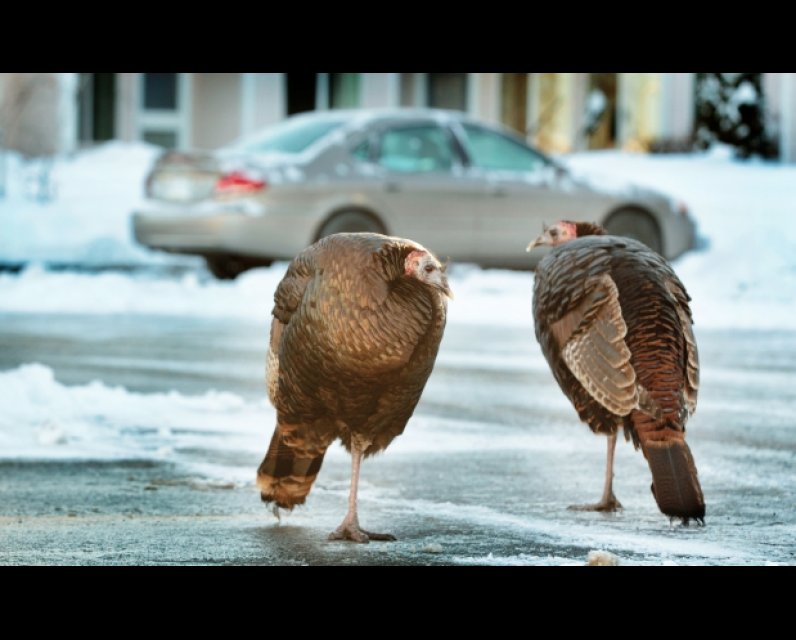Unpublished Opinions
The Greenspace Alliance works to preserve green spaces in the National Capital area. Concerned residents formed the Alliance in October 1997. Our primary aim is to conserve public and private green space. This includes natural and landscaped places deemed significant by a community. We also work to protect waterways and wetlands.
We believe that urban greenness is essential for a community's quality of life. Places of greenness contribute to our personal, social, economic, cultural and spiritual well-being. They also connect us with the natural and cultural history of our region.
Greenspace Alliance submission re: City of Ottawa Wildlife strategy

Dear Members of Council,
Please find attached a submission on the April 2013 draft Wildlife Strategy from the Greenspace Alliance of Canada's Capital sent to staff today. We forward it to you because we believe that action by elected officials is required at this time if this initiative is to lead to positive results.
We make three essential points:
- this Strategy falls well short of being of real assistance to residents who encounter wildlife in the city;
- prior to rising to Council, the review of this strategy initiative should be undertaken by an Ad Hoc Committee of Councillors drawn from the three Standing Committees whose mandates are involved: Agricultural and Rural Affairs, Planning, and Environment; and
- an Advisory group needs to be struck consisting of staff and community stakeholders to guide any implementation of the Strategy.
This commendable directive from a previous Council has seen a rocky road in its development, with transparency sorely lacking. A progressive policy to reduce wildlife conflicts is urgently needed in this city. We look forward to your leadership to bring process and outcome back to where it ought to be.
Sincerely,
Erwin Dreessen, Co-Chair
Greenspace Alliance of Canada's Capital
Greenspace Alliance Response to City of Ottawa Draft Wildlife Strategy
General
This Strategy is, on the whole, disappointing. First and foremost, it offers virtually no prospect of real assistance for residents who feel negatively affected by wildlife.
This failure to meet the concerns of ordinary residents is not unrelated to the failed process -- a 16-month hiatus -- that has led to the draft Strategy now before us. However, further finger pointing will not be productive and will only lead to more recriminations. In our view, the key to going forward is to try to reestablish a trust relationship between the parties and this can only be done if there is close communication between the City and the community stakeholders. At the same time, it is imperative that at the political level, the issue be broadened to go beyond the Agricultural and Rural Affairs Committee (ARAC) to include both the planning and environmental perspectives.
It also seems clear to us that what is being called for more precisely is a wildlife conflict reduction strategy. Within this context it is important to note that the needs and issues of farmers, other rural residents and urbanites may differ but efforts do need to be made wherever possible to seek common ground, while recognizing and accommodating differing interests.
The Wildlife Strategy Development Process
As a result of Council’s decision on February 24, 2010 a Wildlife Strategy Working Group, composed of other government agencies and community stakeholders, began meeting in May 2010. A total of seven meetings were held until February 2011 at which time it was decided the staff chair would issue a draft strategy for review by WG members. In June 2012 a draft strategy was issued and was the subject of severe criticism, particular in its use of the term “nuisance wildlife” which ran completely counter to the objectives and underlying approach agreed to by the working group.
In September 2012 the Ottawa-Carleton Wildlife Centre issued a 16-page detailed report with recommendations and resigned from the Working Group as did the representative of the Animal Alliance of Canada/Ontario Wildlife Coalition. A further draft dated April
2013 was issued with the objectionable term removed but the content essentially the same as the previous draft.
During the hiatus, we do understand that the WG chair became busy with other issues, in particular with the Official Plan process. However, it has now also been revealed that during this period there was intervention in relation to the process by the Mayor’s office that led to significant delays. In addition, we strongly object to the referral of the draft Wildlife Strategy for review by the Agriculture and Rural Affairs Committee (ARAC) when it was the previous Council’s intent that the Wildlife Strategy go to a joint meeting of the then Planning and Environment Committee and ARAC for review. It seems clear that Council saw this issue as a rural as well as an urban concern, particularly given the large number of calls received by the City from urban residents. Our concern is greatly heightened by the fact that ARAC’s Chair is well known to have a negative view of wildlife.
We therefore call for the formation of an Ad Hoc Committee drawn from the Planning, Environment and ARA Standing Committees. This would conform to what Council (wisely) envisaged originally. How the Mayor and Council resolve this process issue will
be an indication of the City’s commitment to a progressive wildlife strategy.
The Wildlife Strategy Content
The major critiques by the Ottawa-Carleton Wildlife Centre in their September 2012 response, are in our view, still applicable to the April 2013 draft; in particular, unchanged is:
- the on-going trapping and killing of beavers throughout the City; the inclusion of lethal trapping or live trapping in combination with euthanasia as options for dealing with what was formerly referred to as “nuisance” wildlife;
- a large-mammal response that remains secretive and unaccountable to the public;
- demonstration projects to evaluate flow devices where there is no beaver, no water and no risk and, even if there were, the devices installed have been designed to fail;
- education and outreach projects that will provide little benefit to the majority of Ottawa residents.
Where we do appear to differ is in relation to the hiring of a Wildlife Biologist. We support the creation of such a position, contingent on the establishment of a truly consultative advisory committee composed of City staff and key community experts who
will work together in the planning and implementation of the Strategy.
Missing from the Strategy is guidance on the conflict between cats and wildlife. A recent article in Nature Communications (Loss et al., 29 Jan 2013) documented the truly massive impact of free-roaming domestic, barn and feral cats on mortality of birds in
particular. There are ways of mitigating each type of conflict and these should be part of the City's strategy.
Greenspace Alliance Recommendations
- We are calling for the establishment of a Wildlife Strategy Implementation Advisory Group, with representation from the key City Departments (rural office, planning, operations etc.) and community stakeholders, particularly those with expertise and experience in the management of human/wildlife conflicts. Without such an opening up of the process the war of words will likely continue and probably intensify – a non-productive state of affairs. In our view, establishment of such an advisory group will be a key test of the City’s willingness to engage the community in an open and transparent manner.
- We conditionally support the creation of a Wildlife Biologist staff position, although its reporting to ARAC, given that most human/wildlife conflicts originate in the urban, not rural, areas does not appear logical. Given the nature and challenges of the work, it is imperative that the incumbent not only needs to have extensive knowledge of the field but also needs to be a focal point for public concerns regarding wildlife issues. The incumbent therefore needs to have strong negotiating skills, be an excellent communicator with the public and be able to work well with citizens' interest groups. However, our support is contingent on the establishment of a Wildlife Strategy Implementation Advisory group as outlined in recommendation #1. Otherwise, we see little chance of improvement in the way the City handles human-wildlife conflicts.
- The City should reconsider having an educational kit developed by the Let's Talk Science program at the universities. There are other, much more experienced, resources in the community, such as Michael Runtz, who could develop such a tool.
- It is important that the City allow meaningful experimentation on flow devices for storm water, culverts and municipal drain installations. Experiments to date appear to have been designed to fail.



Comments
Be the first to comment